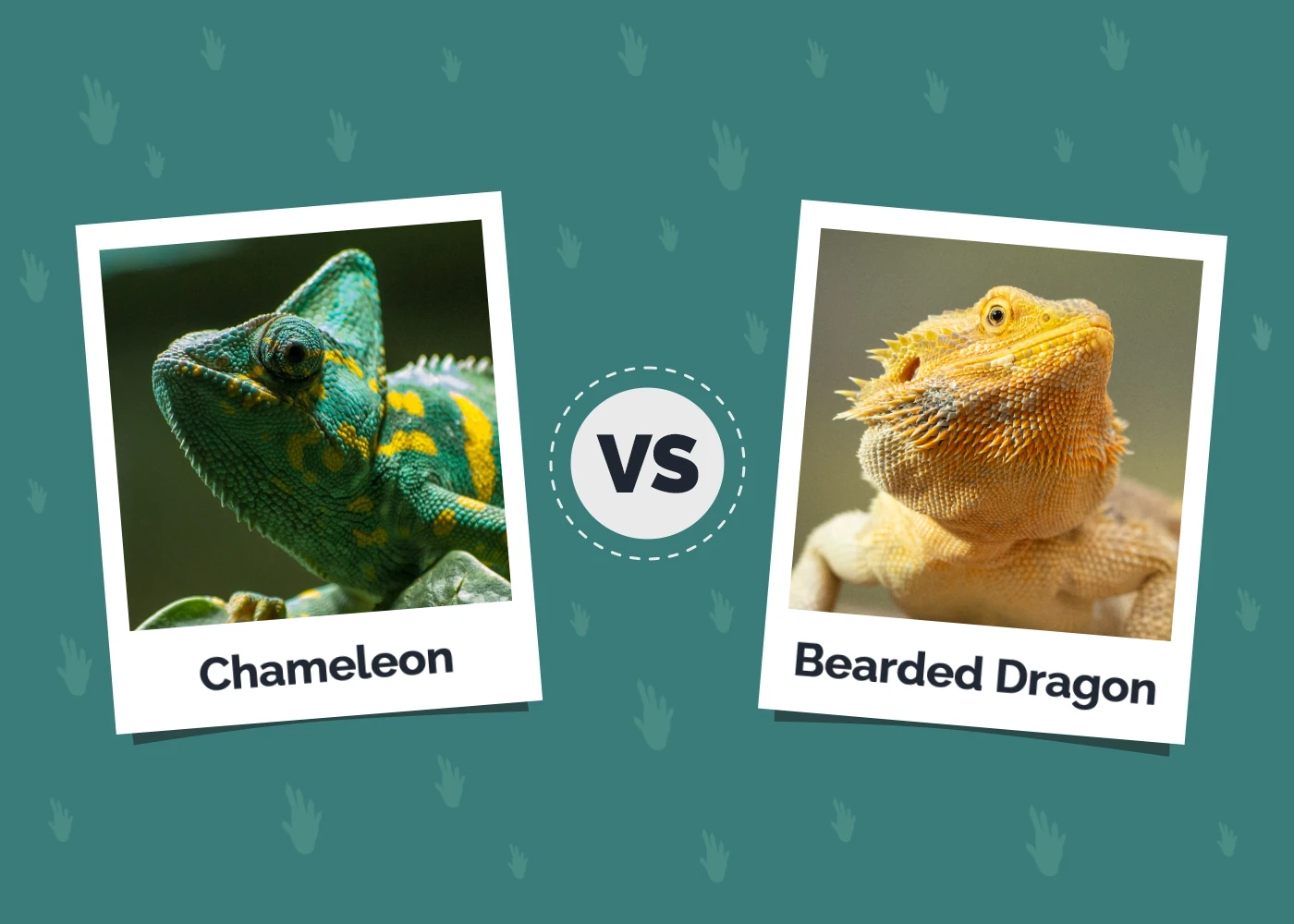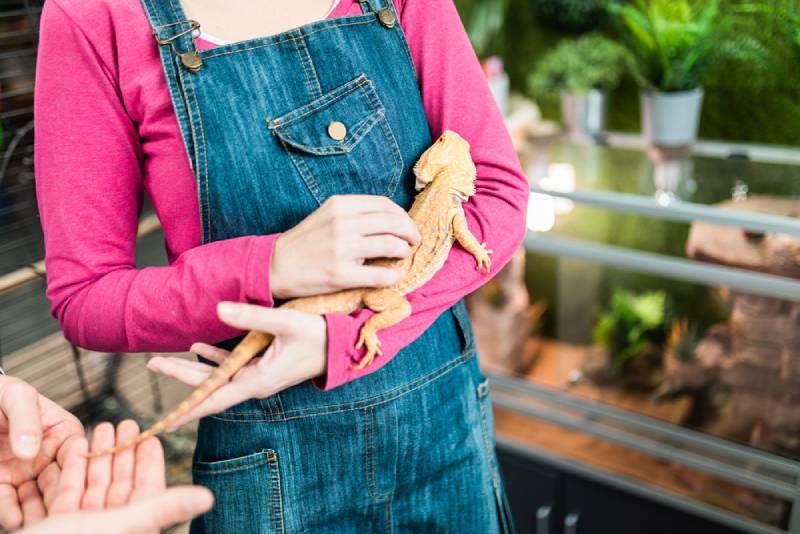Can Bearded Dragons Eat Brussels Sprouts? Vet-Reviewed Facts & FAQ

Updated on
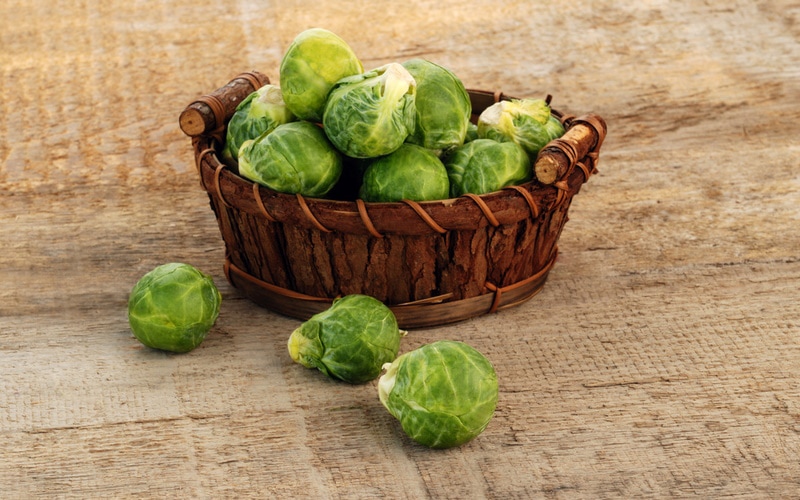
If Brussels sprouts are one of your favorite veggies, you might wonder if you can share them with that special Bearded Dragon in your life. Although Brussels sprouts are considered safe to eat, they can only be enjoyed if given to your Bearded Dragon as an occasional treat. Feeding them too many or too often could lead to health problems, which depends on how much phosphorus and calcium are in the Brussels sprouts.
Are Brussels Sprouts Toxic?
Brussels sprouts aren’t considered toxic to Bearded Dragons, which means they can eat a small portion without becoming unwell. There are some health benefits to eating sprouts, such as:
- Antioxidants: They lower inflammation and aid the immune system
- Fiber: Promotes heart health and supports healthy digestion
- Vitamin C: Helps the immune system
- Vitamin K: Promotes bone and blood health
Unfortunately, there are also various problems with Brussels sprouts. They are acidic, which can lead to gastrointestinal upset if they are fed too much. They are also energy-rich and have a high-calorie content, which can result in your Bearded Dragon putting on weight if they aren’t getting enough exercise. Additionally, they strip iodine from your Bearded Dragon, which can result in hyperthyroidism.
What is more concerning is how Brussels sprouts affect calcium absorption; they contain oxalic acid, which prevents calcium from being absorbed. They also have too much phosphorous in comparison to calcium. Phosphorous acts like oxalic acid and prevents calcium from being absorbed, which is a big problem because Bearded Dragons need calcium.
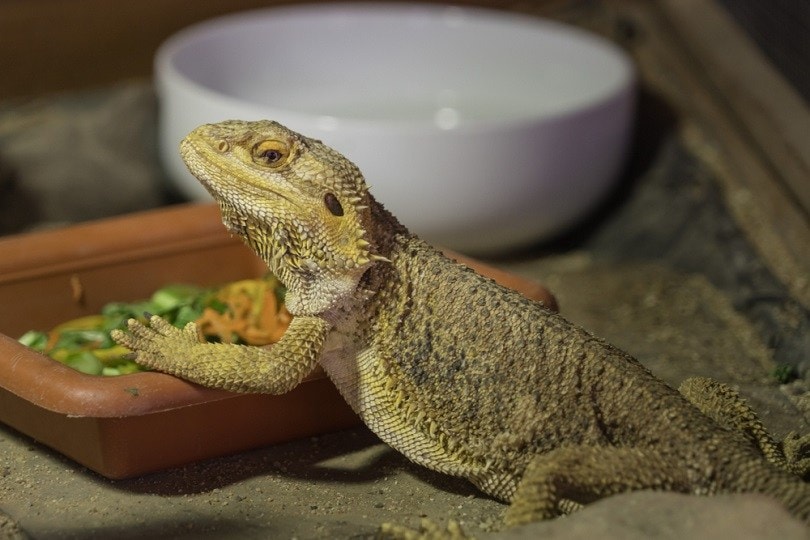
The Importance of Calcium
Calcium is responsible for the healthy growth and maintenance of bones. Since Bearded Dragons can’t naturally produce their own, ensuring they eat the right foods is especially important.
In the wild, Bearded Dragons synthesize UVB rays to create vitamin D3, utilizing the calcium they ingest from their natural diet. Unfortunately, your Beardie won’t get enough of this vitamin from their terrarium lighting. You can supplement their food by dusting it with calcium. However, if you offset this by giving them food high in oxalic acid and phosphorous, it could prevent them from absorbing the calcium you’re taking the time to add to their diet.
Many experts agree to stick with food that is two parts calcium to one part phosphorous, but Brussels sprouts are 4:1, making them far too high to be a suitable addition to your Beardie’s regular diet. Calcium deficiency is incredibly dangerous and can lead to metabolic bone disease (MBD).
Metabolic Bone Disease (MBD)
MDB is a common disease in Bearded Dragons and is a complex one. Common signs include swelling of the hind limbs (fibrous osteodystrophy), softening of the bones (facial and jaw bones known as “rubber jaw”), and swelling of the lower jaw. Your Bearded Dragon might also be so weak that they can’t walk or push their bodies up and end up crouched low or lying on their abdomens. If they can walk, they might tremor as they do so.
If the condition progresses, your Bearded Dragon will lose their appetite, suffer from muscle twitching, and will be lethargic. Unfortunately, not all cases can be resolved, so it’s vital to contact your veterinarian if you’re unsure whether or not your Bearded Dragon is getting enough calcium.
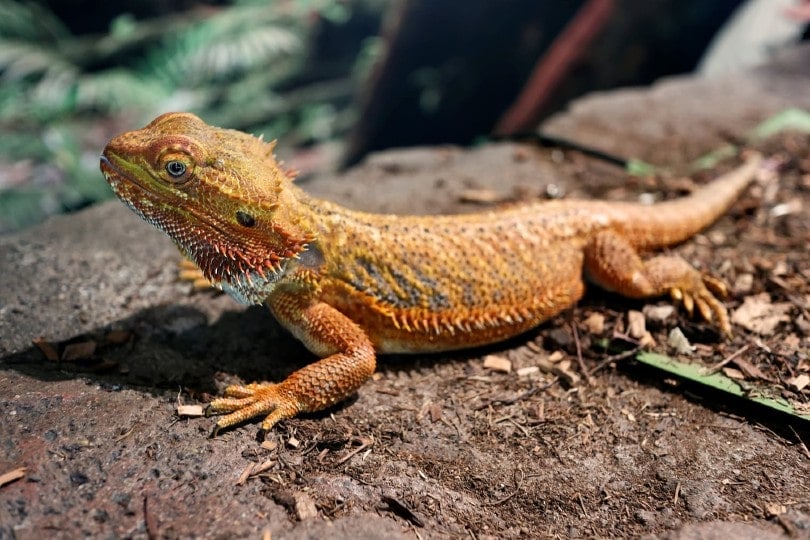
How to Feed Brussels Sprouts to Your Bearded Dragon Safely
Your Bearded Dragon shouldn’t eat a whole Brussels sprout in one go since they could choke on it. So, clean the sprout first, chop it up, and feed it to your beardie raw and plain.
Cooking a Brussels sprout first isn’t exactly harmful unless you use oil, seasoning, or butter. You could boil it, but this will increase the amount of water they are ingesting. So, we recommend opting for raw, plain Brussels sprouts!
Safe Vegetables to Feed Your Bearded Dragon
Around 80–90% of the plant material your Beardie will eat should be leafy green vegetables and flowers; the rest should be made up of fruit. Avoid nutrient-poor, fiber-rich, vitamin-deficient light green veggies like celery and iceberg lettuce. Examples of vegetables that should make up a large part of your Beardie’s diet include:
- Alfalfa hay
- Beet greens
- Bell peppers
- Bok choy
- Broccoli
- Cilantro
- Clover
- Collard
- Dandelion
- Escarole
- Green beans
- Kale
- Kohlrabi
- Mustard
- Parsley
- Red/green cabbage
- Savory
- Swiss chard
- Turnip greens
- Watercress
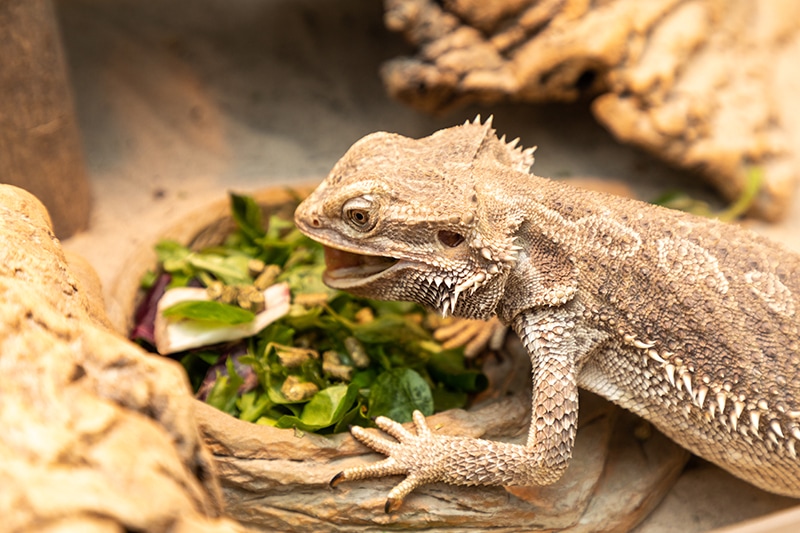
Final Thoughts
Bearded Dragons can enjoy Brussels sprouts as a treat if they are fed raw, and you only offer them occasionally. They are healthy and have many benefits, but it’s important to note that while they might not be toxic, they can lead to health issues because they can cause problems with calcium absorption. Your vet is the ultimate authority if you are ever concerned about your Beardie’s diet or want advice about what to feed them.
Featured Image Credit to Denis Tabler, Shutterstock


